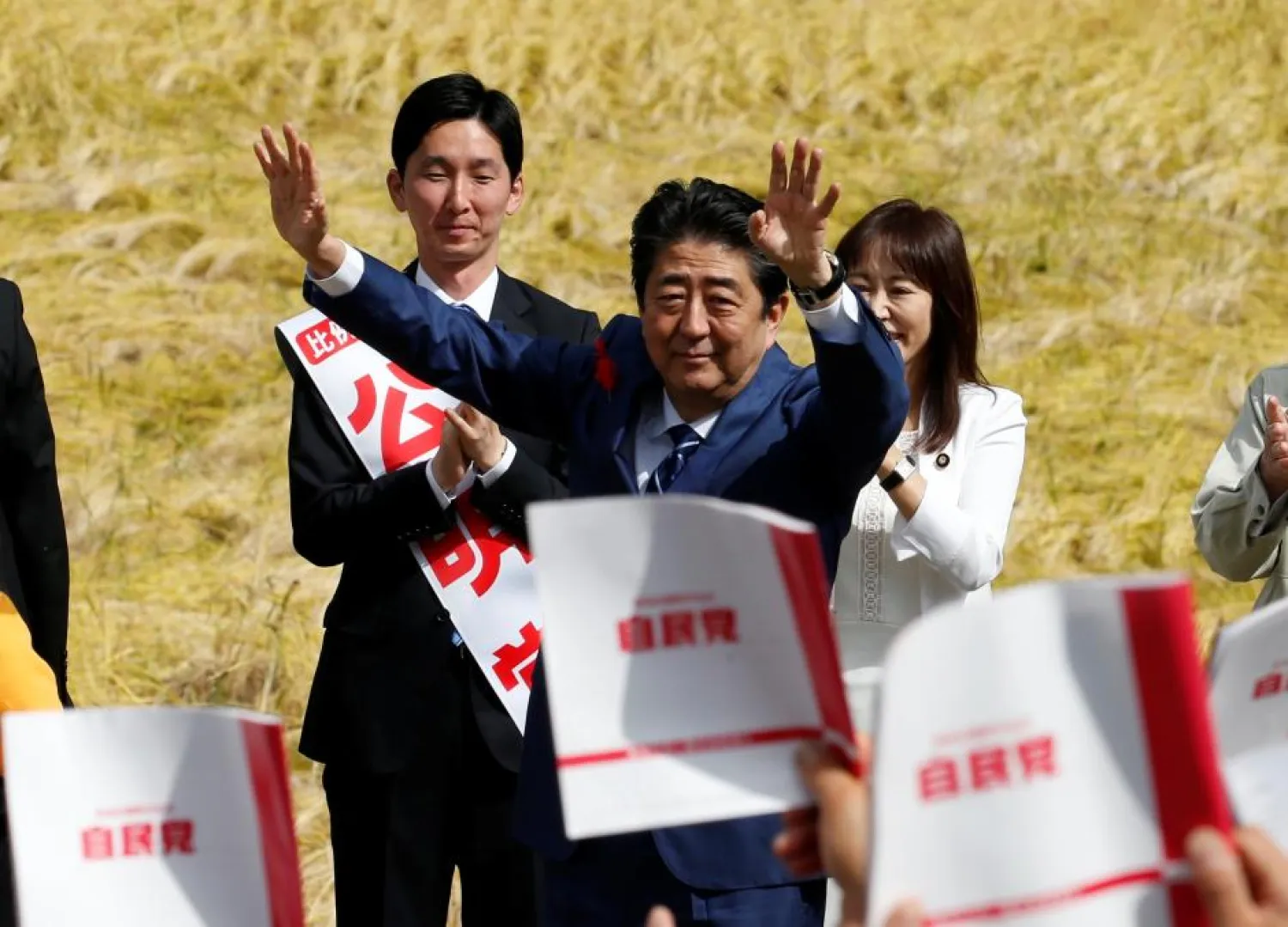Campaigning for the lower house election kicked off in Japan on Tuesday with Prime Minister Shinzo Abe seeking to fend off a challenge from the Tokyo governor.
Up for grabs are 465 seats in the more powerful of Japan's two-chamber parliament.
The October 22 election pits Abe’s Liberal Democratic Party-led coalition against the less than one-month-old Party of Hope headed by popular Governor Yuriko Koike, a former LDP lawmaker often floated as a possible first female premier.
Her upstart new party has pledged to rid the government of cronyism in a challenge to Abe’s near-five year hold on power.
Abe says he needs to renew his mandate to cope with a “national crisis” stemming from North Korea’s nuclear and missile threat and the demographic time-bomb of Japan’s fast-ageing population.
"We should stay unwavering," he said. "It is the policies, rather than a boom or slogans, that can open the future."
The 63-year-old Abe called the poll amid opposition disarray and an uptick in approval ratings that had slid due to a series of scandals over suspected cronyism.
But, the sudden emergence of Koike’s party, which also appeals to conservative voters, could upset Abe’s calculation. The main opposition Democratic Party imploded last month and a big chunk of its candidates are running on the Party of Hope ticket.
Koike, who defied the LDP last year to run for governor, calls her fledgling party a “reformist, conservative” group free from the fetters of vested interests -- an often popular campaign slogan in Japan.
“We have a surplus of things in this country, but what we don’t have is hope for the future,” said Koike, 65, kicking off her campaign outside one of Tokyo’s major train stations.
Koike has repeatedly said she won’t run for a seat which would make her eligible for the premiership and has declined to say whom her party would support for the post, leaving the door open to a variety of possible tie-ups including with Abe’s LDP.
Others outside the station were less convinced by Koike’s talk of cleaner politics, while trusting Abe to safeguard national security.
“I doubt she can deliver politics free from vested interests,” said Minori Hiramatsu, a 28-year-old mother of one who was on her way to a job interview.
“Abe has problems domestically, but he is the best person to protect us from North Korean threats.”
The LDP-led coalition is defending a two-thirds “super majority” in parliament’s lower house, so losing its simple majority would be a major upset. Abe’s LDP had 288 seats in the lower house before it was dissolved for the election, while its junior partner the Komeito had 35.
Recent opinion polls show the LDP in the lead and some analysts think Abe could still pull off another landslide victory.
A soggy performance for the LDP, however, could stir calls from inside the party to replace Abe or deny him a third term as leader in September 2018, ending his chances of becoming Japan’s longest-serving premier.
The Party of Hope echoes Abe’s LDP on security and diplomacy - it backs tough sanctions on North Korea and controversial security legislation enacted in 2015 to expand the military’s role overseas.
Koike also agrees with Abe that Japan’s post-war, US-drafted, pacifist constitution should be amended, though not necessarily on what changes are needed.
On economic policies, Koike’s party has sought to differentiate itself by calling for an end to nuclear power by 2030 and a freeze on a sales tax hike planned for 2019.
Abe wants to keep nuclear power as a key part of Japan’s energy mix, and raise the sales tax and spend more of the revenues on education and child care.
A center-left Constitutional Democratic Party of Japan, formed from the liberal wing of the failed Democratic Party, is wooing voters dissatisfied with both conservative options.
Constitutional Democratic Party leader Yukio Edano said Abe's nearly five years of pro-business policies have escalated Japan's social divide.
"We must regain decent lives," Edano said. "We are going to change politics into one that is based on the people's voices, not one that comes down from up above."
Koichi Nakano, an international politics professor at Sophia University in Tokyo, says the election could be a transition to a less stable political environment as party alliances and re-groupings may continue after the election.
A favorable result for Koike's party and its possible alliance with Abe's ruling party would mean a dominance of ultra-conservatives. In that case, Nakano said, "Japan wouldn't have a viable party system with any significant competition to speak of."









